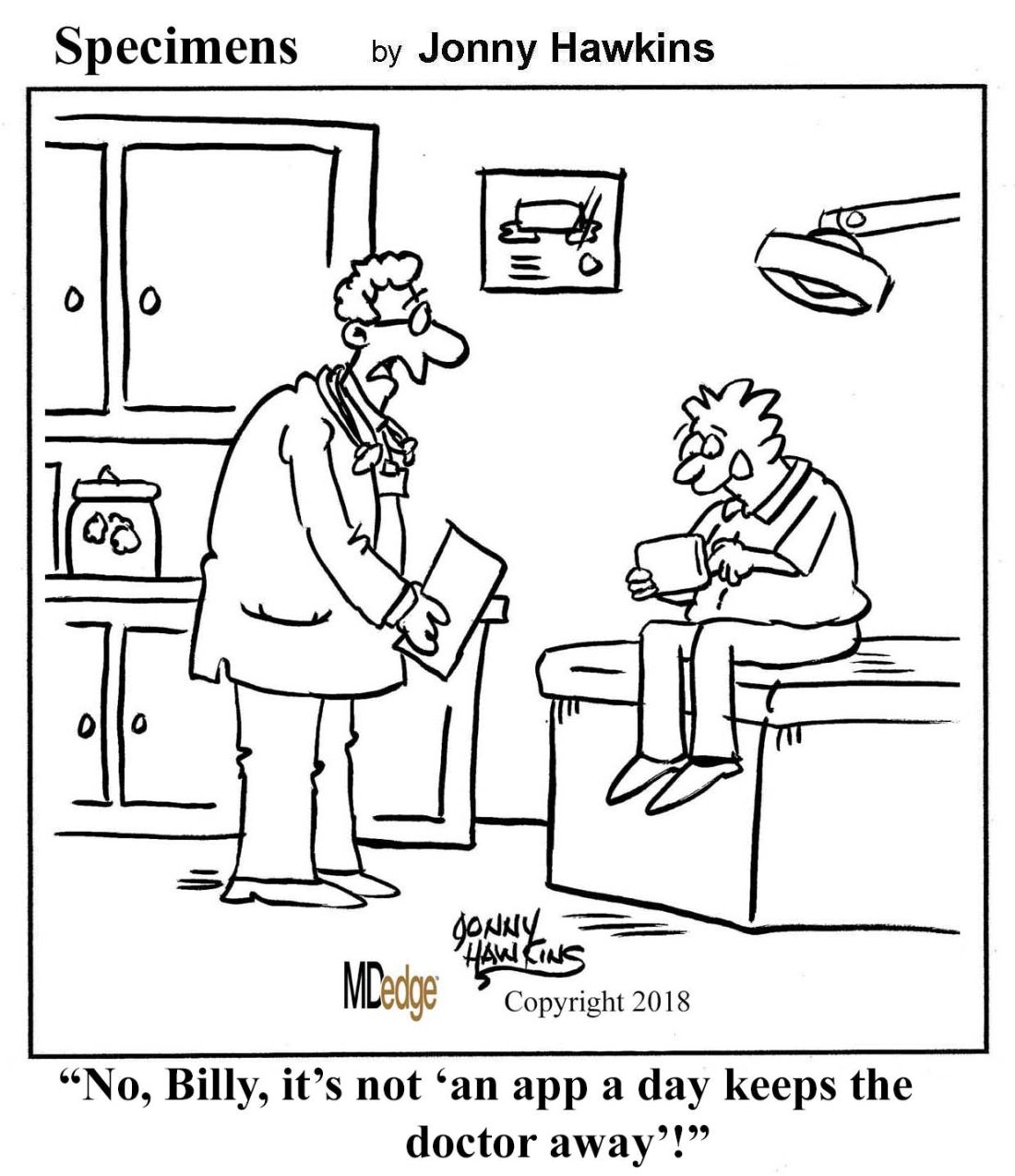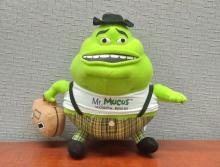User login
Stop the selfies
If you’re a selfie aficionado, this is crucial information. People hate your selfies, and people hate you.
Okay, maybe that’s being a little aggressive, but a new study from Washington State University has shown that, if you’re a chronic selfie poster, people (aka your loyal Instagram audience) are more likely to view you as unlikable, unsuccessful, insecure, and closed off to new experiences.
The study was born from the idea that chronic selfie takers are more narcissistic than the rest of us. Chris Barry, PhD, the lead author of this study, conducted research into that hypothesis and found inconclusive results: Selfie prevalence just wasn’t indicative of personality. However, Dr. Barry realized there may be a stronger link between the amount of selfies posted and how people (whom the selfies are forced upon) perceive the selfie taker. [Editor’s note: I am more tired of reading the word “selfie” than of seeing them at this point.]
Study participants were asked to rate the Instagram profiles of 30 undergrad students on attributes such as low self-esteem, self-absorption, and success. The profiles with more posed photos were viewed as being more adventurous, more outgoing, and having high self-esteem, while the reverse was true for profiles with lots of selfies. And for the men trying online dating: Flexing-in-the-mirror selfies were viewed extra negatively.
So what have we learned from this all-important selfie study? If you want to step up your online profile, start by deleting a few of those selfies. Send them to Grandma instead, who will really appreciate your pretty face.
Emoji emotion
You’re setting up your online dating profile. You’ve removed all the selfies and have only the most flattering posed photos of yourself: with your dog, climbing a mountain, at the beach, all the greatest hits. You’ve been messaging the ladies nonstop, impressing them with your witty wordplay and impeccable spelling. But so far, not much is happening. What gives? According to a study from the Kinsey Institute, you’ve got to use more emojis.
Surveying more than 5,000 adults, researchers found that frequent emoji use predicted more first dates and more frequent sexual activity. The findings suggest that
Is an emoji worth a thousand words? For some, apparently. The authors noted that emojis can be used in addition to words to strategically infuse digital communication with expression and emotion that typed words often lack. For many, a smiley emoji carries more emotional weight than writing that you’re happy. If you’re looking to spice up your love life, say it with emojis instead. And if you’re not well-versed in emoji speak, make sure to look up the meaning of the eggplant emoji before you use it.
The nomination would have been enough, really
We here at LOTME love a good survey ... Okay, most of us here at LOTME love a good survey ... All right, it looks like three out of four LOTME staffers surveyed are quite fond of a good survey.
Here, now, finally, is some news about a survey. The good folks at Crestline – whose custom-imprinted promotional products “bring your logo to life!” – asked 1,630 U.S. residents about “America’s Most Memorable Mascots.” The respondents were asked to identify and rate 82 characters representing the best of American marketing, including Colonel Sanders, Little Debbie, Chuck E. Cheese, and the Aflac duck.
In a sweep of epic proportions, the top ranking in each of five measures – least likable, least persuasive, least trustworthy, most annoying, and most creepy – went to the same character: Mr. Mucus, the face of the Mucinex brand.
After hearing the big news, Elyse Altabet, marketing director for Mucinex, had this to say to FiercePharma: “We agree that Mr. Mucus is thoroughly annoying – after all, he is the personification of your most annoying cold. Far from being our mascot, though, it is our sole goal to help get rid of him whenever he tries to invade our lives. Which is why every American knows that when sick happens, we reach for Mucinex.”
Not so sexy after all
Another day, another organism being marketed as an aphrodisiac thanks to some dubious science, according to a report from the New Zealand Newsroom. To be fair, though, advertising a product called sexy pavement lichen as a natural male enhancement isn’t the worst-sounding idea in the world.
The sexy lichen in question, Xanthoparmelia scabrosa, most commonly found in Australia and New Zealand, isn’t that much more attractive than any other lichen. It’s more of a nuisance than anything else, as it loves to grow in pavement and makes roads covered in the stuff dangerously slick when it rains.
As for any benefit as an aphrodisiac, the plant does contain a PDE5 inhibitor, which can inhibit an enzyme causing impotence but may also be toxic on its own. Plus you’ll be getting a dose of such heavy metals as copper, lead, cadmium, mercury, and basically anything else you’d find in asphalt.
The “legitimate” business people involved claim to grind up the actual lichen, and their product is then marketed as an ancient Chinese therapy for erectile dysfunction. A thriving market has been built around sexy pavement lichen, with thousands of tons available on websites such as Alibaba at the premium price of $100 per kg.
In reality, people are buying a combination of Viagra and grass clippings, as harvesting that much lichen would be both unfeasible and unsustainable, according to the Newsroom report. Sadly, it seems that “legitimate” business people have once again let us all down. But hey, at least they’re not selling poisonous lichen. 
Stop the selfies
If you’re a selfie aficionado, this is crucial information. People hate your selfies, and people hate you.
Okay, maybe that’s being a little aggressive, but a new study from Washington State University has shown that, if you’re a chronic selfie poster, people (aka your loyal Instagram audience) are more likely to view you as unlikable, unsuccessful, insecure, and closed off to new experiences.
The study was born from the idea that chronic selfie takers are more narcissistic than the rest of us. Chris Barry, PhD, the lead author of this study, conducted research into that hypothesis and found inconclusive results: Selfie prevalence just wasn’t indicative of personality. However, Dr. Barry realized there may be a stronger link between the amount of selfies posted and how people (whom the selfies are forced upon) perceive the selfie taker. [Editor’s note: I am more tired of reading the word “selfie” than of seeing them at this point.]
Study participants were asked to rate the Instagram profiles of 30 undergrad students on attributes such as low self-esteem, self-absorption, and success. The profiles with more posed photos were viewed as being more adventurous, more outgoing, and having high self-esteem, while the reverse was true for profiles with lots of selfies. And for the men trying online dating: Flexing-in-the-mirror selfies were viewed extra negatively.
So what have we learned from this all-important selfie study? If you want to step up your online profile, start by deleting a few of those selfies. Send them to Grandma instead, who will really appreciate your pretty face.
Emoji emotion
You’re setting up your online dating profile. You’ve removed all the selfies and have only the most flattering posed photos of yourself: with your dog, climbing a mountain, at the beach, all the greatest hits. You’ve been messaging the ladies nonstop, impressing them with your witty wordplay and impeccable spelling. But so far, not much is happening. What gives? According to a study from the Kinsey Institute, you’ve got to use more emojis.
Surveying more than 5,000 adults, researchers found that frequent emoji use predicted more first dates and more frequent sexual activity. The findings suggest that
Is an emoji worth a thousand words? For some, apparently. The authors noted that emojis can be used in addition to words to strategically infuse digital communication with expression and emotion that typed words often lack. For many, a smiley emoji carries more emotional weight than writing that you’re happy. If you’re looking to spice up your love life, say it with emojis instead. And if you’re not well-versed in emoji speak, make sure to look up the meaning of the eggplant emoji before you use it.
The nomination would have been enough, really
We here at LOTME love a good survey ... Okay, most of us here at LOTME love a good survey ... All right, it looks like three out of four LOTME staffers surveyed are quite fond of a good survey.
Here, now, finally, is some news about a survey. The good folks at Crestline – whose custom-imprinted promotional products “bring your logo to life!” – asked 1,630 U.S. residents about “America’s Most Memorable Mascots.” The respondents were asked to identify and rate 82 characters representing the best of American marketing, including Colonel Sanders, Little Debbie, Chuck E. Cheese, and the Aflac duck.
In a sweep of epic proportions, the top ranking in each of five measures – least likable, least persuasive, least trustworthy, most annoying, and most creepy – went to the same character: Mr. Mucus, the face of the Mucinex brand.
After hearing the big news, Elyse Altabet, marketing director for Mucinex, had this to say to FiercePharma: “We agree that Mr. Mucus is thoroughly annoying – after all, he is the personification of your most annoying cold. Far from being our mascot, though, it is our sole goal to help get rid of him whenever he tries to invade our lives. Which is why every American knows that when sick happens, we reach for Mucinex.”
Not so sexy after all
Another day, another organism being marketed as an aphrodisiac thanks to some dubious science, according to a report from the New Zealand Newsroom. To be fair, though, advertising a product called sexy pavement lichen as a natural male enhancement isn’t the worst-sounding idea in the world.
The sexy lichen in question, Xanthoparmelia scabrosa, most commonly found in Australia and New Zealand, isn’t that much more attractive than any other lichen. It’s more of a nuisance than anything else, as it loves to grow in pavement and makes roads covered in the stuff dangerously slick when it rains.
As for any benefit as an aphrodisiac, the plant does contain a PDE5 inhibitor, which can inhibit an enzyme causing impotence but may also be toxic on its own. Plus you’ll be getting a dose of such heavy metals as copper, lead, cadmium, mercury, and basically anything else you’d find in asphalt.
The “legitimate” business people involved claim to grind up the actual lichen, and their product is then marketed as an ancient Chinese therapy for erectile dysfunction. A thriving market has been built around sexy pavement lichen, with thousands of tons available on websites such as Alibaba at the premium price of $100 per kg.
In reality, people are buying a combination of Viagra and grass clippings, as harvesting that much lichen would be both unfeasible and unsustainable, according to the Newsroom report. Sadly, it seems that “legitimate” business people have once again let us all down. But hey, at least they’re not selling poisonous lichen. 
Stop the selfies
If you’re a selfie aficionado, this is crucial information. People hate your selfies, and people hate you.
Okay, maybe that’s being a little aggressive, but a new study from Washington State University has shown that, if you’re a chronic selfie poster, people (aka your loyal Instagram audience) are more likely to view you as unlikable, unsuccessful, insecure, and closed off to new experiences.
The study was born from the idea that chronic selfie takers are more narcissistic than the rest of us. Chris Barry, PhD, the lead author of this study, conducted research into that hypothesis and found inconclusive results: Selfie prevalence just wasn’t indicative of personality. However, Dr. Barry realized there may be a stronger link between the amount of selfies posted and how people (whom the selfies are forced upon) perceive the selfie taker. [Editor’s note: I am more tired of reading the word “selfie” than of seeing them at this point.]
Study participants were asked to rate the Instagram profiles of 30 undergrad students on attributes such as low self-esteem, self-absorption, and success. The profiles with more posed photos were viewed as being more adventurous, more outgoing, and having high self-esteem, while the reverse was true for profiles with lots of selfies. And for the men trying online dating: Flexing-in-the-mirror selfies were viewed extra negatively.
So what have we learned from this all-important selfie study? If you want to step up your online profile, start by deleting a few of those selfies. Send them to Grandma instead, who will really appreciate your pretty face.
Emoji emotion
You’re setting up your online dating profile. You’ve removed all the selfies and have only the most flattering posed photos of yourself: with your dog, climbing a mountain, at the beach, all the greatest hits. You’ve been messaging the ladies nonstop, impressing them with your witty wordplay and impeccable spelling. But so far, not much is happening. What gives? According to a study from the Kinsey Institute, you’ve got to use more emojis.
Surveying more than 5,000 adults, researchers found that frequent emoji use predicted more first dates and more frequent sexual activity. The findings suggest that
Is an emoji worth a thousand words? For some, apparently. The authors noted that emojis can be used in addition to words to strategically infuse digital communication with expression and emotion that typed words often lack. For many, a smiley emoji carries more emotional weight than writing that you’re happy. If you’re looking to spice up your love life, say it with emojis instead. And if you’re not well-versed in emoji speak, make sure to look up the meaning of the eggplant emoji before you use it.
The nomination would have been enough, really
We here at LOTME love a good survey ... Okay, most of us here at LOTME love a good survey ... All right, it looks like three out of four LOTME staffers surveyed are quite fond of a good survey.
Here, now, finally, is some news about a survey. The good folks at Crestline – whose custom-imprinted promotional products “bring your logo to life!” – asked 1,630 U.S. residents about “America’s Most Memorable Mascots.” The respondents were asked to identify and rate 82 characters representing the best of American marketing, including Colonel Sanders, Little Debbie, Chuck E. Cheese, and the Aflac duck.
In a sweep of epic proportions, the top ranking in each of five measures – least likable, least persuasive, least trustworthy, most annoying, and most creepy – went to the same character: Mr. Mucus, the face of the Mucinex brand.
After hearing the big news, Elyse Altabet, marketing director for Mucinex, had this to say to FiercePharma: “We agree that Mr. Mucus is thoroughly annoying – after all, he is the personification of your most annoying cold. Far from being our mascot, though, it is our sole goal to help get rid of him whenever he tries to invade our lives. Which is why every American knows that when sick happens, we reach for Mucinex.”
Not so sexy after all
Another day, another organism being marketed as an aphrodisiac thanks to some dubious science, according to a report from the New Zealand Newsroom. To be fair, though, advertising a product called sexy pavement lichen as a natural male enhancement isn’t the worst-sounding idea in the world.
The sexy lichen in question, Xanthoparmelia scabrosa, most commonly found in Australia and New Zealand, isn’t that much more attractive than any other lichen. It’s more of a nuisance than anything else, as it loves to grow in pavement and makes roads covered in the stuff dangerously slick when it rains.
As for any benefit as an aphrodisiac, the plant does contain a PDE5 inhibitor, which can inhibit an enzyme causing impotence but may also be toxic on its own. Plus you’ll be getting a dose of such heavy metals as copper, lead, cadmium, mercury, and basically anything else you’d find in asphalt.
The “legitimate” business people involved claim to grind up the actual lichen, and their product is then marketed as an ancient Chinese therapy for erectile dysfunction. A thriving market has been built around sexy pavement lichen, with thousands of tons available on websites such as Alibaba at the premium price of $100 per kg.
In reality, people are buying a combination of Viagra and grass clippings, as harvesting that much lichen would be both unfeasible and unsustainable, according to the Newsroom report. Sadly, it seems that “legitimate” business people have once again let us all down. But hey, at least they’re not selling poisonous lichen. 




